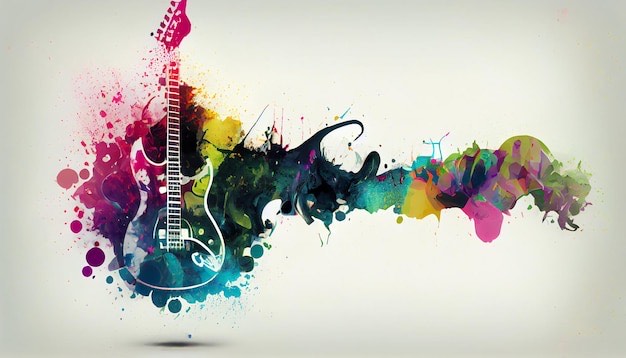Music. The very word evokes so many emotions in all of our lives. Beginning with forming an integral part of human culture for centuries, everyone can identify with the way song lyrics, instruments, the ways in which music is composed, singing or playing instruments, or even just listening to our favorite songs can have a profound influence on our emotional development and overall well-being.
That being said, music engagement not only shapes our personal and cultural identity but can also play a role in mood regulation and can help address trauma and other serious mental health disorders. Music also has a healing potential that enhances our understanding and appreciation of diversity and inclusion by introducing people to new cultures and amplifying the voices of marginalized communities.
Adding music therapy to a patient’s regular treatment, along with medication and psychotherapy, can improve depressive symptoms when compared with standard treatment alone. Music therapy can also decrease anxiety levels and improve day-to-day functioning in people suffering from affective disorders (i.e., depression and anxiety).
Listening to music, singing, and/or playing an instrument can reduce levels of cortisol, a hormone released by the body when under stress. The pleasure we feel when listening to music can also produce dopamine, a neurotransmitter that influences the reward centers in the brain.
Music has been a driving force throughout Dr. Jamie’s life.
Dr. Jamie truly believes that music can allow us a respite of psychological safety, awaken us from cognitive fog, ease the tensions of self-consciousness, help us recover our memory, and sharpen our sense of identity. It can help reduce existential suffering, and remind us of the oneness we share with the cosmos. In short, music provides an oasis in the desert of our childhood traumatic mirages.
Dr. Jamie has a strong identification and a deep love of the experiential aspects of rock music. His childhood home was filled with conflict created by fighting parents and was extremely deregulating, adding to his experience of trauma. He suffered bouts of depression and his need to distance himself from this environment led him to rebel, questioning the status quo in his world.
His experience of the world around him was characterized by judgmentalism, racism, and small-minded people clinging to their self-absorbed identities in fear and trepidation. Rock ‘n’ roll music and film projected the message that the world needed to change, and these two art forms became the neurologically safe space that provided him with peace and restoration. In trauma-informed parlance, they became his emotional regulators.
His future was sealed in the early 70’s when he saw The Who perform “Tommy” in concert.
Dr. Jamie’s own family trauma brought him to identify with the character of Tommy, who was traumatized by witnessing his father’s murder and who was subsequently abused by family members. “Tommy” was the prophetic first time in music that Complex Post Traumatic Stress Disorder (CPTSD) was identified. Through Dr. Jamie’s pre-clinically trained eyes, he saw Pete Townshend build a scenario of CPTSD recovery, even before the psychology profession could develop the proper theories to explain its constructs. Truth be told, he has always thought that Tommy’s main composer, Pete Townshend, along with The Who, was the greatest singular influence on his professional and personal journey in so many ways. “Tommy” today is every bit as relevant as when it was first played at Woodstock! In fact, Dr. Jamie took his 12-year-old daughter to New York City to see it on Broadway – realizing it was as applicable to her today as it was for him over 50 years ago.
Dr. Jamie’s experience of “Tommy” launched music as his medicine, escape, healing, and his source for neuro-regulation. It’s no accident that he has become a trauma-certified psychologist and licensed clinical social worker. This became the medicinal path for his journey to becoming the Founder and Executive Director of the international charity, TAR Network™.
Music can foster self-understanding and give us knowledge of ourselves that comes from a deep and visceral experience. When the physiological, neurological, or physical mechanics are not understood, music can illuminate the workings of our minds and bodies. Music allows us to experience where and who we are in ways that conscious reason cannot explain.
Instead of thinking of music as pure entertainment, consider some of the major mental benefits of incorporating music into your everyday life. You might find that you feel more motivated, happy, and relaxed as a result.
Music and the action of listening to music…
- unites communities and nations,
- heals those who are broken,
- calms those who are on edge of anxiety,
- helps those who struggle to concentrate,
- helps to allay fears and traumas,
- aids in regulating emotions, and
- has powerful psychological effects that can improve your health and well-being.
What is your favorite band and your favorite song that you like to listen to when you feel under the weather or sad? Please share with us this Monday at 7:00 PM EDT.
You can begin your road to recovery by joining TAR Network™, an international 501(c)(3) charity dedicated to supporting victims of narcissistic abuse. We encourage those who have had their fair share of experience with TAR to join weekly TAR Live Meetings on InTheRooms.com every Monday at 7:00 PM ET and learn how to protect yourself from TAR, overcome the trauma bond and heal from CPTSD.







1 Comment
Jason Isbell is my new go to on listening to music.